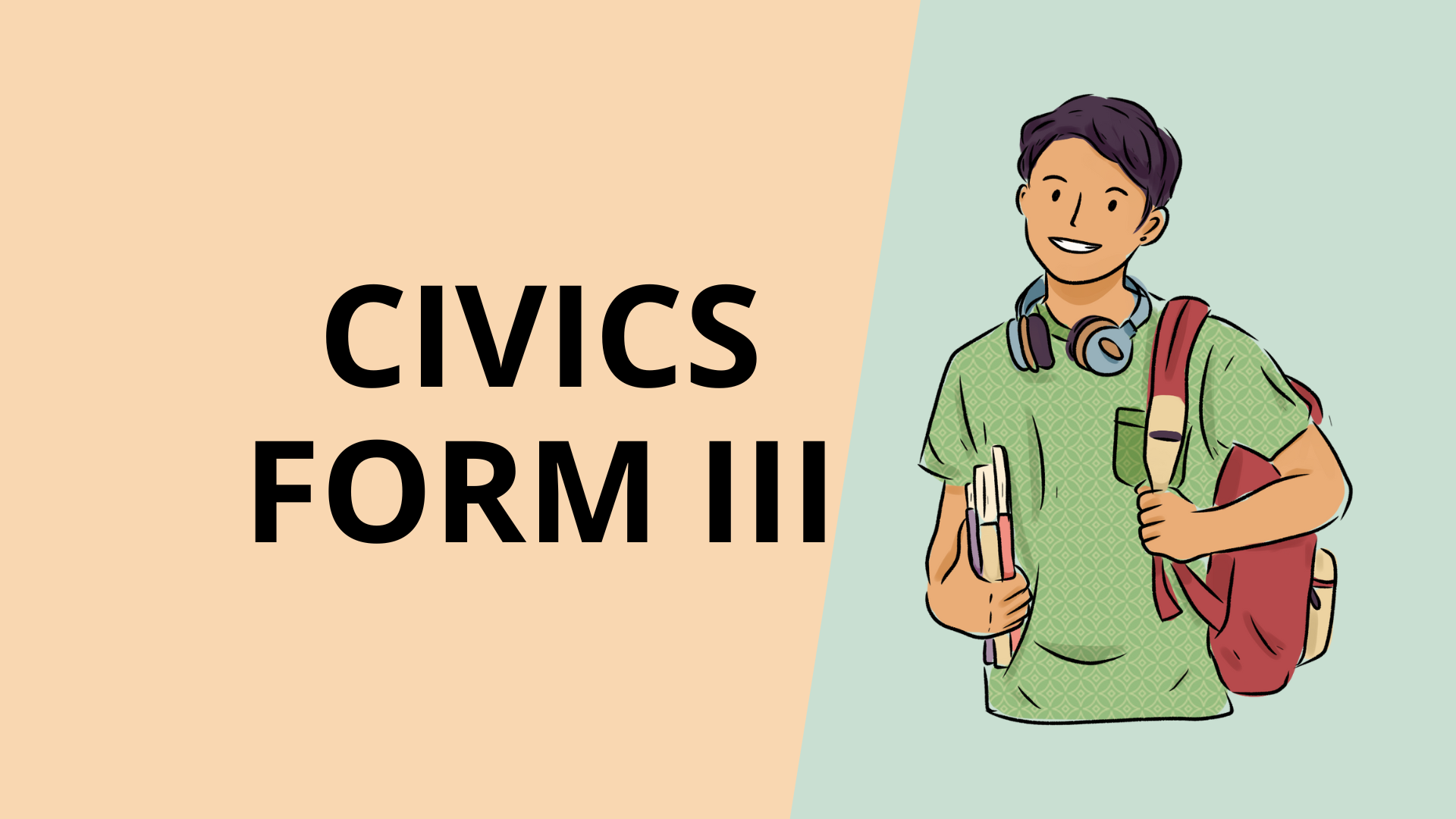The completion of Civics Form III aims to culminate students' formal education in civics with a comprehensive understanding of their roles and responsibilities as engaged citizens. By meeting the curriculum requirements and actively participating in learning activities, students can achieve a range of outcomes that prepare them for active participation in civic life and further academic pursuits. Here’s an overview of the key outcomes:
1. Advanced Understanding of Civic Concepts and Structures
- Deep knowledge of government operations, political ideologies, and international relations.
- Insight into complex civic issues and the structures that govern civic life at local, national, and global levels.
2. Critical and Analytical Thinking Skills
- Enhanced ability to critically evaluate civic information, policies, and media.
- Skills to analyze and propose solutions to civic and social problems, considering ethical implications and diverse perspectives.
3. Effective Communication and Advocacy
- Proficiency in articulating well-founded arguments, both in writing and orally, tailored to diverse audiences.
- Ability to advocate for civic causes or policies effectively, using evidence-based arguments and persuasive communication techniques.
4. Leadership in Civic Engagement
- Leadership skills that enable initiating, planning, and executing civic projects or campaigns.
- Experience in mobilizing and working collaboratively with peers and community members toward common civic goals.
5. Global Citizenship
- Awareness of global issues and understanding of the interconnectedness of global and local civic challenges.
- Readiness to act as responsible global citizens, with a commitment to understanding and addressing international problems.
6. Ethical Decision-Making
- Capacity for ethical reasoning and making informed decisions that consider the common good, justice, and the well-being of diverse communities.
7. Digital Citizenship
- Responsible use of technology to engage in civic life, including navigating digital media to consume and produce information critically.
- Understanding of the impact of digital technologies on society and civic engagement.
8. Preparedness for Further Education and Career Paths
- A solid foundation for pursuing further education in fields related to civics, social sciences, political science, law, and public administration.
- Development of transferable skills valuable in various career paths, including critical thinking, communication, leadership, and ethical reasoning.
9. Lifelong Learning and Civic Involvement
- A commitment to ongoing learning about civic issues and active participation in civic life beyond formal education.
- Motivation to stay informed, engage in dialogue and debate, and contribute to the democratic process and community development.
10. Social Justice and Community Development
- Understanding of social justice principles and the skills to work toward equitable solutions for community issues.
- Engagement in practices that promote social justice, equity, and the sustainable development of communities.
Civics Form III is designed to not only impart knowledge but also to instill in students the values, skills, and motivation needed to actively contribute to society. By achieving these outcomes, students are well-prepared to navigate the complexities of civic life, advocate for meaningful change, and assume their roles as informed, responsible citizens.
Civics Form III represents a further progression in the civics education curriculum, typically designed for students who have completed Civics Form I and II. This level focuses on deepening students' understanding of complex civic and political concepts, enhancing their analytical skills, and encouraging them to apply their knowledge to real-world situations. Here’s a general overview of what Civics Form III might cover:
1. Advanced Government and Politics
- In-depth study of constitutional principles, the rule of law, and the checks and balances within various government systems.
- Examination of policy-making processes and the impact of legislation on society.
2. International Relations and Global Issues
- Detailed exploration of international relations theories, global governance structures, and the role of supranational organizations.
- Analysis of current global issues such as international conflict, humanitarian crises, and global economic trends.
3. Civic Leadership and Advocacy
- Development of leadership skills with a focus on civic responsibility and advocacy strategies.
- Exploration of case studies involving successful civic and political campaigns.
4. Social Justice and Equity
- Advanced study of social justice issues, including the causes and consequences of inequality and strategies for promoting equity and inclusiveness.
- Examination of the role of social movements in driving social change.
5. Public Policy and Community Development
- Understanding of how public policy is developed and implemented, including the role of public opinion, interest groups, and lobbying.
- Exploration of community development principles and practices, emphasizing sustainable and inclusive strategies.
6. Civic Engagement and Participation
- Encouragement of active participation in community service, political advocacy, and other forms of civic engagement.
- Practical projects and assignments that require students to engage with their communities or address civic issues.
7. Digital Citizenship and Media Literacy
- Examination of the role of digital media in shaping public opinion and political engagement.
- Development of media literacy skills to critically evaluate information and engage responsibly in digital spaces.
8. Ethics and Integrity in Public Life
- Discussion of ethical considerations in public life, including transparency, accountability, and the public trust.
- Analysis of ethical dilemmas faced by citizens and leaders.
9. Environmental Sustainability and Global Citizenship
- Study of environmental issues from a global perspective, including climate change, resource management, and sustainable development.
- Emphasis on the responsibilities of global citizens towards environmental stewardship.
10. Preparation for Active and Informed Citizenship
- Comprehensive preparation for students to become informed, active citizens capable of contributing positively to society and the global community.
Civics Form III is designed to not only provide students with advanced knowledge and understanding of civic concepts but also to empower them with the skills and confidence needed to actively engage in civic life and to advocate for positive change within their communities and beyond.
